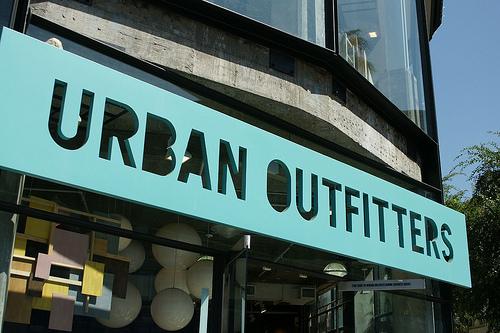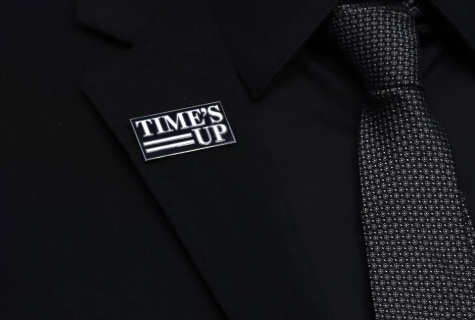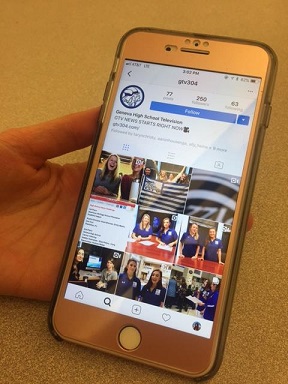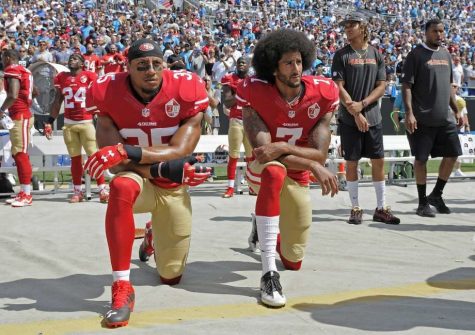Urban Offenders

I remember my first time walking into an Urban Outfitters. I was a seventh grader with braces, an unfortunate set of side bangs, and a premature ignorant appreciation for classic rock. I was infatuated with the idea of being able to wear clothing with strategically placed holes that were not purchased from Abercrombie, and moreover, thrilled to be exposed to the world of graphic tees that did not have a vintage-washed Superman or Coca-Cola label on them. I didn’t understand a thing that I was reading, but it was cool. I wanted to be like the doe-eyed hot girls in the high-waisted pants. That day I walked out with a striped navy and crème tee-shirt, costing a ridiculous thirty-four dollars. Much like the cigarette holding models on the posters, I was hooked.
As I grew older, I continued shopping at this fine establishment. Little-by-little and year-by-year, their image became my image, as I delved into melding their pieces with thrift pieces and other overpriced, over hyped, style staples. Though I was no longer seeking solace from the middle school blues, I was finding home in their high school skewing ways.
They were the type of clothing that my favorite bands, writers, and artists were wearing- emulating my favorite historical fashion eras in a non-dusty way. I liked that they told me I didn’t have to like Uggs or look sporty-chic in a pair of track shorts and Nikes. In fact, they perhaps encouraged that I didn’t. It oozed lifestyle rather than just an outfit that allowed me to feel confident in my freethinking ways.
But the more I analyzed their clothing, the more I realized what a negative impact this brand could be selling to impressionable minds like my side-banged, brace faced self. Was there more to their appeal than whimsical lure and reincarnated grunge? Three pieces caught my eye that made me take a step back and think, am I wearing a brand, or is a brand wearing me?
One pieced included a grey v-necked shirt that simply said “Eat Less,” the exploitation of the Navajo culture through jewelry and patterns, and a tee-shirt that said “Depression.” Finally, a college sweatshirt representing Kent State that was a smeared red color with blood-esque splatters adorning its fabric. Promoting eating disorders? Glamorizing mental illness? Exploiting a group’s cultural heritage? Mocking a school tragedy? That isn’t fashion forward, edgy, or self-expression. That’s just lame as hell.
To think that this is what consumers like myself are supporting by merely purchasing a pair of shorts or a sweater makes me question the very integrity of the corporation’s executive conscious. While Urban Outfitters has pulled these pieces and publically apologized for any offense, this is what they are seeking to have young girls and guys, literally, buy into. The brand was wearing me.
I was no longer an individual, but a representation of an Internet raised culture that praised itself for being “different.” The very idea that struggle is cool, unhealthy is hip, and tragedy is beautiful, are set ideals that need to be stopped. It’s painfully illogical and irritating. Embrace your flaws- but do not exploit or glorify the hardships of others.
While the majority of Urban Outfitters apparel is still up my alley, the past gaffes have tainted the image in my mind, and makes me think twice before spending far too much money on a piece of clothing I could probably purchase at a more palatable price. Urban, dude, you really gotta check yourself before you wreck yourself.






Kim Shoe • Nov 13, 2014 at 3:15 pm
This is a good article. Good work